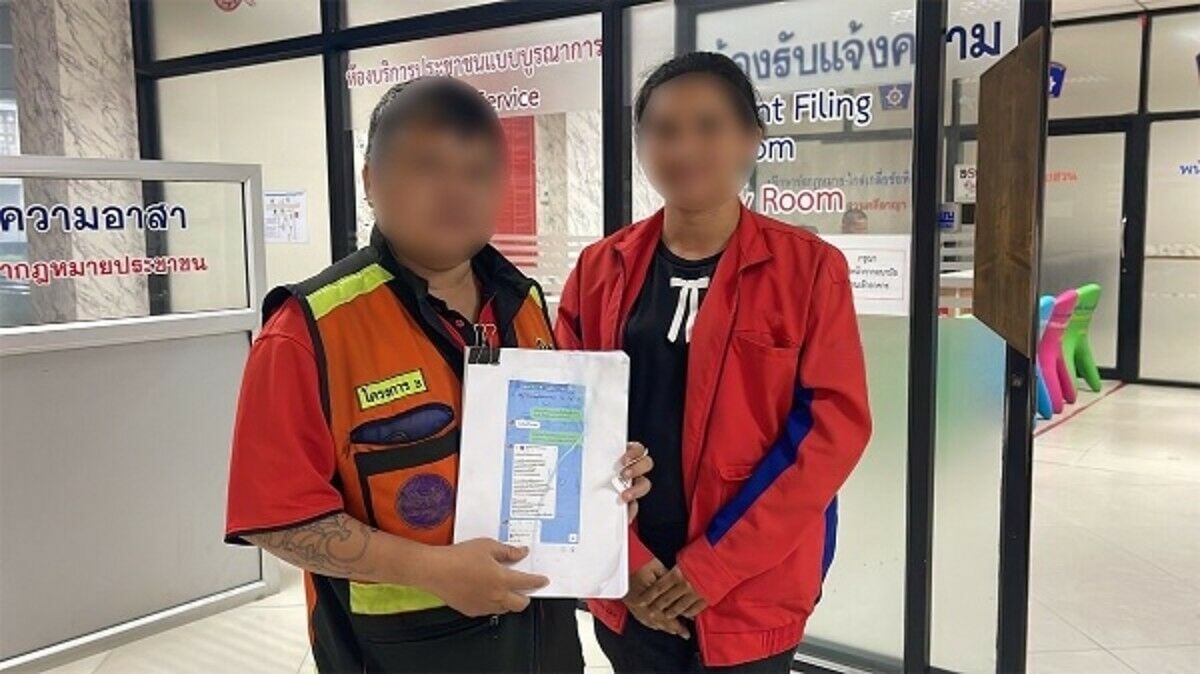State workers lose 18 million baht in iCon Group scam

Two state enterprise employees have come forward as victims of The iCon Group scam, having lost a total of 18 million baht. The state workers, along with 102 others, have filed complaints with the police.
The workers, 49 year old Pitipat and 32 year old Piromna presented evidence of money transfers and related documents to the investigators. Their ordeal began in 2020 during the Covid-19 pandemic. Piromna, seeking additional income, came across an advertisement for a course on creating online content and ads for 29 baht, which she found affordable and thus enrolled through an online system.
Initially, Piromna attended the advertised lessons. However, the course gradually introduced topics on selling products, including collagen and coffee. She decided to purchase these items, believing they would benefit her health and boost her immunity. She eventually ordered a central stock of products worth 24,000 baht to sell and use herself. Over two years, she used and distributed the products, struggling to sell them due to their high cost and low demand. The income she had hoped for did not materialise, contrary to the promotional claims.
Pitipat, another state enterprise employee, recounted her experience with The iCon Group, which began with a TV advertisement for a course on creating video clips priced at 95 baht. She was then invited to a Zoom group for online training. During these sessions, participants were encouraged to join The iCon Group if they had no products to sell.
The enticing promise of a 100% profit from product sales led Pitipat to take out a cooperative loan from her workplace, amounting to over 300,000 baht. She invested 250,000 baht in her first bill with the network led by Boss Doctor Ek, motivated by claims that the profits could become a legacy for her descendants. This initial investment provided her with two boxes of vitamin C and coffee to consume and sell.
However, the products did not sell due to their high market price. Pitipat ended up consuming the items herself and giving them away to acquaintances. Her house is now filled with expired products, and she is burdened with significant debt. The stress from this situation led her to contemplate suicide, although she received support from colleagues and loved ones, despite some people adding to her distress.
Pitipat explained that reporting the scam to the police was her last resort, hoping for some financial restitution. She acknowledged that this experience was the most expensive lesson of her life, reported KhaoSod.
“Seeing the profits from selling the products made me believe in the potential earnings, so I took out a cooperative loan from my workplace.
“I hoped the profits would become a legacy for my descendants, but now I’m left with a house full of expired products and a significant debt. The stress was overwhelming, and I even thought about ending my life, but support from friends and family kept me going.”
If you or anyone you know is in emotional distress, please contact the Samaritans of Thailand 24-hour hotline: 02 713 6791 (English), 02 713 6793 (Thai), or the Thai Mental Health Hotline at 1323 (Thai). Please also contact your friends or relatives at this time if you have feelings of loneliness, stress, or depression. Seek help.
What Other Media Are Saying
- Thailand’s iCon scandal highlights the enduring appeal of get-rich-quick schemes, with 400,000 recruits allegedly defrauded, and losses totaling about US$8 million. (read more)
- Bangkok Post reports on the arrest of Warathaphon “Boss Paul” Waratyaworrakul, CEO of The iCon Group, amidst over 2,000 fraud complaints, with police citing flight risk and systematic fraud impacting society. (read more)
Frequently Asked Questions
Here are some common questions asked about this news
Why do people fall for scams like The iCON Group despite multiple red flags?
Scams often exploit emotional vulnerabilities and promise quick, substantial rewards, overshadowing logical scrutiny.
How can the appeal of seemingly low-cost introductory courses lead to significant financial loss?
Low-cost courses hook people in, gradually upselling more expensive and often unnecessary products or investments.
What psychological factors make victims of scams hesitant to report their experiences?
Shame, guilt, and fear of judgment can prevent victims from coming forward, despite the need for justice.
What if more stringent regulations were enforced on online advertisements? How might this impact scam frequency?
Stricter regulations could reduce misleading ads, decreasing scam occurrences and protecting potential victims.
How do support systems from family and friends play a crucial role in scam recovery?
Emotional and moral support can provide the strength needed for victims to seek justice and rebuild their lives.
Latest Thailand News
Follow The Thaiger on Google News:


























